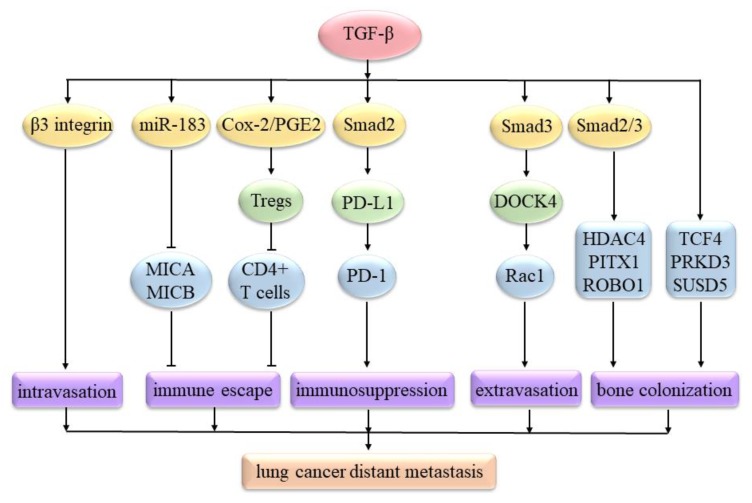Figure 2.
TGF-β signaling regulates lung cancer’s distant metastasis. TGF-β can increase β3 integrin expression to enhance cancer cell intravasation. TGF-β can increase Tregs via Cox-2/PGE2 to suppress the proliferation of CD4+ T cells, thus driving lung CTCs to escape from immune attacks. TGF-β can induce miR-183 to down-regulate MICA and MICB expression, which can help cancer cells evade immune detection. TGF-β1/Smad2 can up-regulate PD-L1. PD-L1 can bind to PD-1 to suppress anti-tumor immunity. TGF-β/Smad3 can induce dedicator of cytokinesis 4 (DOCK4) expression to activate Rac1. Then, Rac1 activation can promote cancer cell extravasation. TGF-β/Smad2/3 is required for the combination of histone deacetylase 4 (HDAC4), paired-like homeodomain 1 (PITX1), and roundabout, axon guidance receptor, and homolog 1 (ROBO1), which can promote the bone colonization of lung cancer cells. TGF-β can increase transcription factor 4 (TCF4), protein kinase D 3 (PRKD3), and SUSD5 levels, which can also enhance bone colonization.

